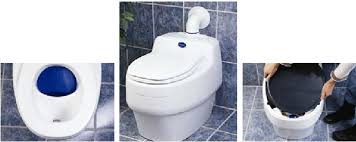Compostable Toilets: Reducing Waste, Saving Resources
In today’s world, sustainability has become a crucial focus as individuals and communities search for practical solutions to reduce environmental impact. One such solution that is gaining recognition for its ability to conserve resources and reduce waste is the compostable toilet. By treating human waste through natural decomposition, compostable toilets offer a sustainable alternative to traditional sewage systems. This article explores how compostable toilet help in reducing waste and saving valuable resources, making them an effective tool in achieving a more eco-friendly lifestyle.
A Sustainable Approach to Waste Management
compostable toilet function by utilizing biological processes to break down human waste into compost, a nutrient-rich organic matter. Unlike conventional flush toilets, which send waste to sewage systems or septic tanks, compostable toilets treat the waste on-site. This means that waste does not end up in landfills or waterways, but instead is safely converted into a usable product.
The end result of this natural decomposition is compost, which can be used to improve soil in landscaping and non-edible plant growth. By converting waste into a valuable resource, compostable toilets offer a closed-loop system that reduces the need for synthetic fertilizers and supports healthier ecosystems. This method of waste management not only reduces pollution but also turns waste into a resource that nourishes the earth.
Water Conservation
One of the most significant advantages of compostable toilets is their ability to conserve water. Traditional flush toilets are major contributors to water consumption, with each flush using several gallons of water. In many regions where water is scarce, this heavy usage is unsustainable and contributes to water shortages.
Compostable toilets require little to no water to operate, making them an ideal solution for areas facing water scarcity or drought. By eliminating the need for flushing, these toilets significantly reduce water consumption, helping to conserve this vital resource. This water-saving feature also translates into lower water bills for households and businesses, providing both environmental and financial benefits.
Reduced Pollution and Waste
Traditional wastewater treatment plants are energy-intensive and often release untreated or partially treated waste into rivers, lakes, and oceans, contributing to water pollution. In contrast, compostable toilets manage waste locally, preventing it from entering the sewage system and causing environmental damage. This localized treatment method helps reduce the burden on centralized sewage systems and prevents the contamination of natural water sources.
Additionally, the waste that would otherwise be sent to landfills is processed into compost, which reduces the volume of solid waste that accumulates in landfills. With compostable toilets, the need for waste transportation and disposal is minimized, further reducing the environmental impact associated with waste management.
Reduced Carbon Footprint
Compostable toilets also have a significantly lower carbon footprint compared to traditional plumbing systems. Wastewater treatment plants consume large amounts of energy to process and transport sewage. By treating waste on-site, compostable toilets eliminate the need for energy-intensive waste transport and treatment, leading to a reduction in greenhouse gas emissions.
In addition to conserving energy, the compost produced by these toilets helps to reduce the need for chemical fertilizers, which are often energy-intensive to produce and can be harmful to the environment. Using compost instead of synthetic fertilizers helps promote sustainable agriculture and landscaping practices.
Conclusion
Compostable toilets provide an innovative solution to waste management by reducing pollution, conserving water, and turning waste into a valuable resource. With their ability to save water, reduce the strain on sewage systems, and minimize environmental pollution, these toilets offer a sustainable alternative to traditional flush toilets. As more individuals and communities embrace compostable toilets, they contribute to a greener, more resource-efficient world, where waste is minimized, and resources are saved for future generations.


